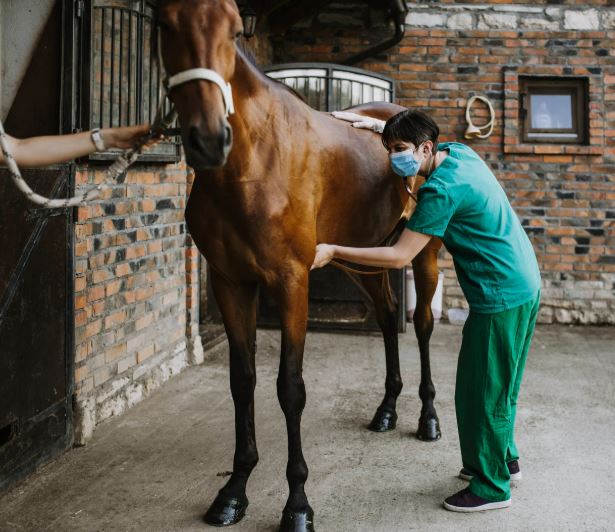What Is a Gelding In Horse Racing?
If you’ve spent any time around horse racing, you might have come across the term “gelding” and wondered what it refers to. These horses are an important part of many races, often competing across various events and sometimes having notably lengthy careers.
Getting a basic understanding of geldings can help clarify some of the differences you’ll notice among horses on the track and why they might behave differently.
What Is a Gelding Horse?

A gelding is a male horse that has undergone castration, meaning the horse’s testicles have been surgically removed. This process affects the horse’s behaviour and health in several ways.
One main reason for castration is to reduce certain natural behaviours that male horses, known as stallions, might show. Stallions can be more difficult to handle because of instincts that drive their behaviour. Geldings, having been castrated, tend to be calmer and easier to manage.
This procedure also helps a horse to stay more focused during training and races, by reducing distractions from other horses, especially females. This increased concentration can be valuable in a competitive racing environment.
Additionally, geldings generally have fewer reproductive health issues than stallions, which can contribute to longer, healthier racing careers. The procedure can be performed at various ages depending on the horse’s needs and intended use.
In short, a gelding is a castrated male horse, which often means a calmer temperament, better focus, and potentially improved health—all of which influence its role in horse racing.

Why Are Horses Gelded?
Gelding horses is a common practice in horse racing for several reasons.
Primarily, it helps modify a horse’s behaviour. Stallions often show strong natural instincts that can lead to aggressive or difficult behaviours. By gelding, these tendencies are usually reduced, making the horse more manageable for trainers and riders.

Another important reason is concentration. In a race or training environment, distractions from other horses—particularly females—can affect an uncastrated male’s focus. Gelding helps reduce these distractions, encouraging better attention to the task at hand.
There are also health-related benefits. Geldings avoid many reproductive system issues that stallions may face, which can mean fewer veterinary concerns and the possibility of competing over a longer period.
Moreover, horses that are calmer and more attentive contribute to smoother interactions on the racecourse, which is beneficial for everyone involved.
In summary, gelding is performed to improve behaviour, focus, and health, which supports both the horses and the people working with them.
Are Geldings Allowed To Race?
Yes, geldings are allowed to race and are quite common in horse racing.
Many successful racehorses are geldings. The effects of the procedure often make them easier to manage and more focused, qualities that can help in competition. Geldings can enter the same races as stallions and mares.
In the UK, geldings participate in both flat racing and National Hunt racing. Although some races have specific entry rules, being a gelding generally does not prevent a horse from taking part. Some of the sport’s most famous winners have been geldings.
Racing authorities value geldings for adding diversity and competition to the fields, making races more interesting for spectators. So when you watch a race, it’s common to see a mix of stallions, mares, and geldings all competing together.
**The information provided in this blog is intended for educational purposes and should not be construed as betting advice or a guarantee of success. Always gamble responsibly.

